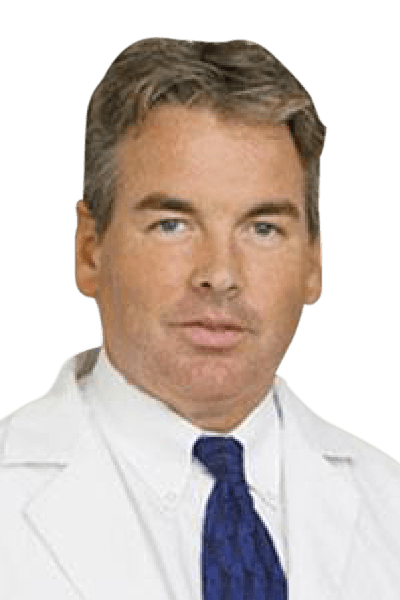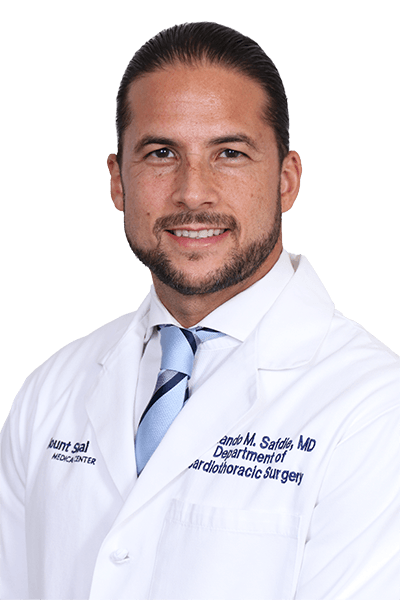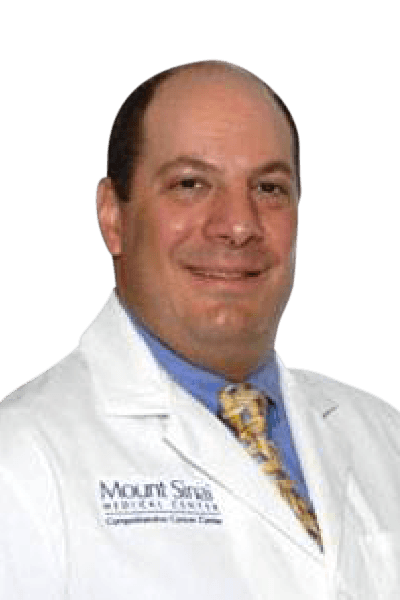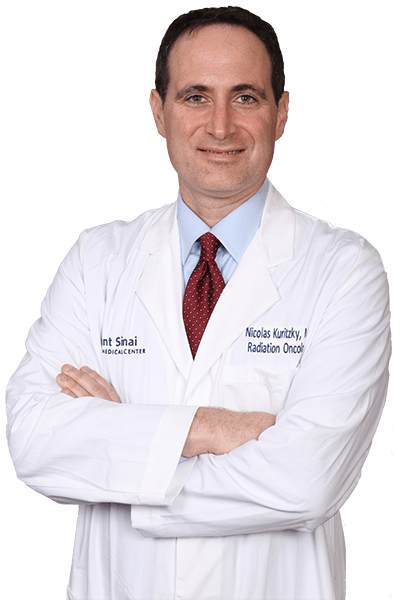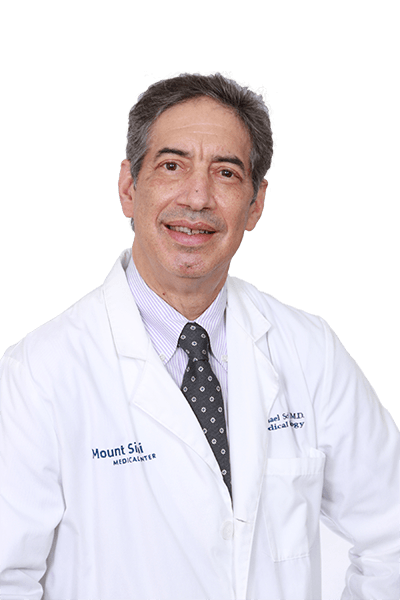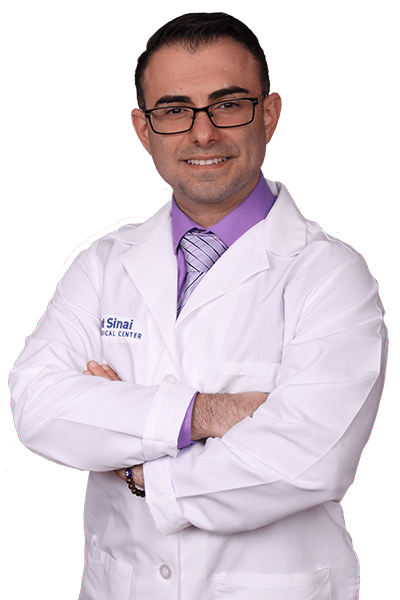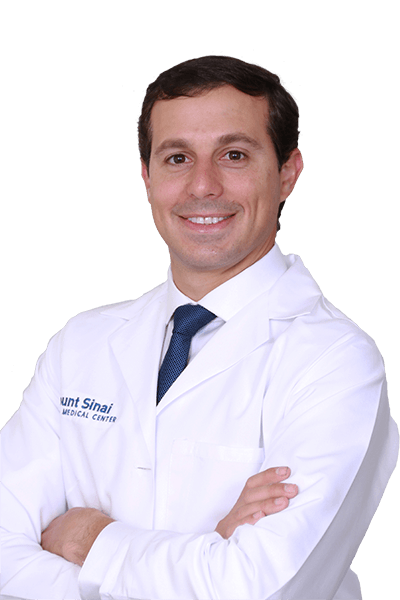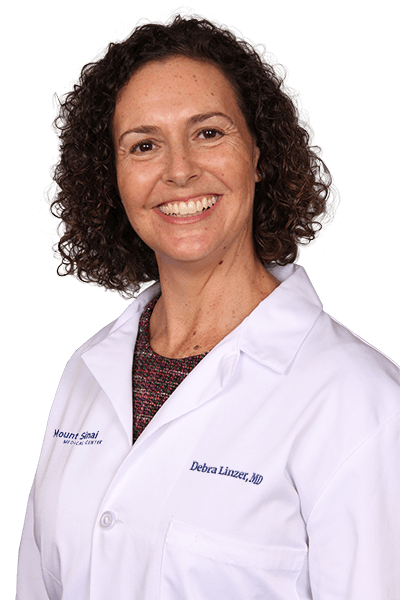Lung Cancer Program Overview
Experienced, Comprehensive Lung Cancer Care
Lung cancer is the second most commonly diagnosed cancer in both men and women, and the most prevalent cause of cancer death in the United States. That’s why Mount Sinai has assembled a multidisciplinary team of oncologists, thoracic surgeons, radiation oncologists, and other health care professionals to create our specialized Lung Center. As a result, Mount Sinai has been recognized as a center of excellence by the Lung Cancer Alliance and offers patients a comprehensive array of diagnostic and treatment options, including minimally invasive, robotic-assisted surgery and access to clinical trials not available at other local institutions.
Cancer Detection
Mount Sinai is at the forefront of lung cancer screening, utilizing imaging technology and minimally invasive surgical techniques to detect the disease in its earliest stages. For example, our surgeons use low-dose CT scans to seek nodules in the lungs of patients with long-term histories of smoking. These nodules are subsequently stained, removed, and biopsied to determine whether they are cancerous.
Our thoracic oncology specialists also are among the most experienced physicians in South Florida when it comes to endobronchial ultrasound to diagnose cancer, infections, and other respiratory disorders. This relatively non-invasive imaging tool allows doctors to see beyond the bronchial wall and detect diseased tissue outside the bronchial airways.
Team Approach
Lung cancer treatment is a highly complex field that requires the expertise of various specialized physicians. Mount Sinai’s thoracic oncology physicians meet regularly, and our team shares their collective knowledge and extensive experience to best address each patient’s unique needs. Theses multidisciplinary tumor conferences include thoracic surgeons, pulmonologists, radiologists, pathologists, and radiation oncologists. Together, our specialists analyze and discuss molecular analysis of tumors, chemosensitivity testing, and other complex medical factors to identify the most effective treatment plan for each patient
Our Physicians
Roy F Williams, MD
Chief, Divison of Thoracic Surgery
- Cardiology
- Robotic Surgery
- Thoracic & Cardiovascular Surgery
- Lung Cancer
- Mount Sinai Medical Center (Main Campus)
- 305.674.2121
Fernando Safdie, MD
Director of Endoluminal and Airway Surgery
Associate Director of Thoracic Surgery
Division of Cardiothoracic Surgery
- Robotic Surgery
- Thoracic & Cardiovascular Surgery
- Lung Cancer
- Mount Sinai Medical Center (Main Campus)
- 305.674.2121
Mike Cusnir, MD
Chief, Division of Hematology & Oncology
Co-Director, Gastrointestinal Malignancies
Assistant Professor at the Columbia University Division of Hematology/Oncology at Mount Sinai Medical Center
- Cancer
- Oncology
- Medical Oncology
- Hematology/Oncology
- Mount Sinai Medical Center (Main Campus)
- (305) 535-3300
- Mount Sinai Emergency Center, Physician Offices, Cancer Center and Diagnostic Center Aventura
- (305) 692-5400
- Mount Sinai Medical Center (Main Campus)
- 305.535.3400
- Mount Sinai Emergency Center, Physician Offices, Cancer Center and Diagnostic Center Aventura
- 305.692.5400
Michael Alan Schwartz, MD
Principal Investigator, Mount Sinai Cancer Research Program
Assistant Professor at the Columbia University Division of Hematology/Oncology at Mount Sinai Medical Center
- Cancer
- Oncology
- Medical Oncology
- Hematology/Oncology
- Lung Cancer
- Mount Sinai Medical Center (Main Campus)
- 305.535.3300
- Mount Sinai Emergency Center, Physician Offices, Cancer Center and Diagnostic Center Aventura
- 305.692.5400
Oleg Gligich, MD
Assistant Professor at the Columbia University Division of Hematology/Oncology at Mount Sinai Medical Center
- Cancer
- Hematology/Oncology
- Mount Sinai Medical Center (Main Campus)
- (305) 535-3300
- Mount Sinai Emergency Center, Physician Offices, Cancer Center and Diagnostic Center Aventura
- (305) 692-5400
There are no results
Aron Simkins, MD
Associate Professor at the Columbia University Division of Hematology/Oncology at Mount Sinai Medical Center
- Cancer
- Hematology/Oncology
- Lung Cancer
- Gastrointestinal Malignancies
- Mount Sinai Medical Center (Main Campus)
- 305.535.3300
- Mount Sinai Emergency Center, Physician Offices, Cancer Center and Diagnostic Center Aventura
- 305.692.5400
Debra Linzer, MD
- Cancer
- Radiation Oncology
- Mount Sinai Medical Center (Main Campus)
- 305.535.3400
- Mount Sinai Emergency Center, Physician Offices, Cancer Center and Diagnostic Center Aventura
- 305.692.5400


